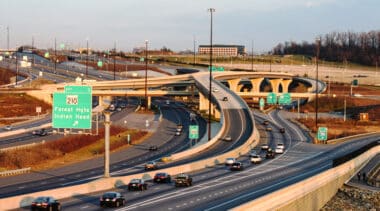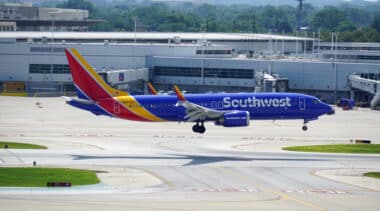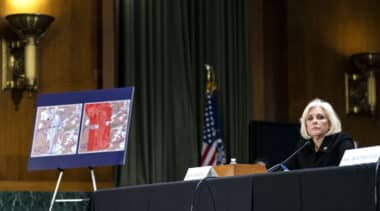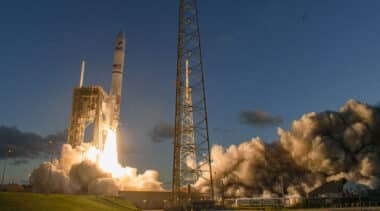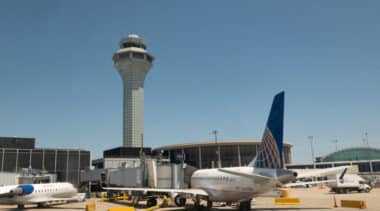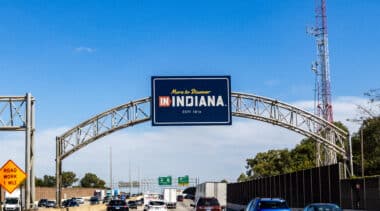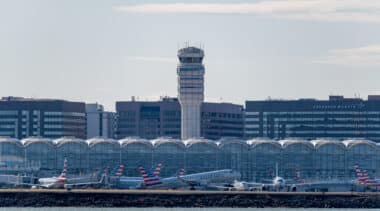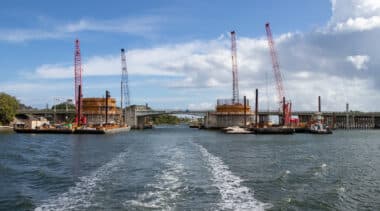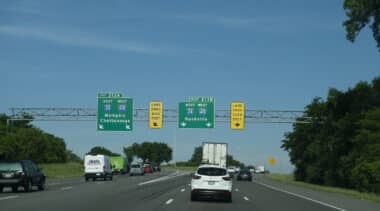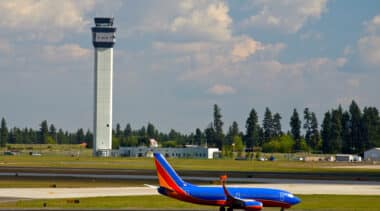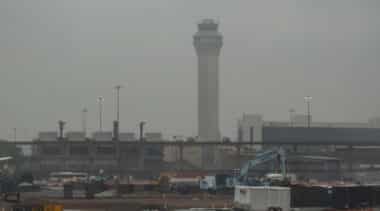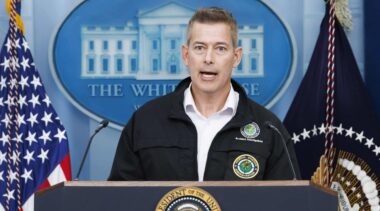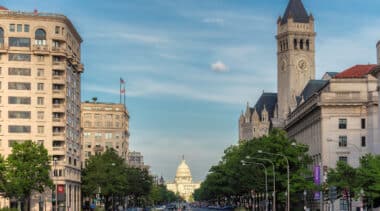Robert Poole is director of transportation policy and Searle Freedom Trust Transportation Fellow at Reason Foundation.
Poole, an MIT-trained engineer, has advised multiple presidential administrations and transportation departments on infrastructure issues.
Surface Transportation
In the field of surface transportation, Poole has advised the Federal Highway Administration, the Federal Transit Administration, the White House Office of Policy Development, National Economic Council, Government Accountability Office, and state Departments of Transportation in numerous states.
Poole's 1988 policy paper proposing privately financed toll lanes to relieve congestion directly inspired California's landmark private tollway law (AB 680), which authorized four pilot toll projects including the successful 91 Express Lanes in Orange County. More than 20 other states and the federal government have since enacted similar public-private partnership legislation. In 1993, Poole oversaw a study that coined the term HOT (high-occupancy toll) Lanes, a term which has become widely accepted since.
California Gov. Pete Wilson appointed Poole to the California's Commission on Transportation Investment and he also served on the Caltrans Privatization Advisory Steering Committee, where he helped oversee the implementation of AB 680.
From 2003 to 2005, he was a member of the Transportation Research Board's special committee on the long-term viability of the fuel tax for highway finance. In 2008 he served as a member of the Texas Study Committee on Private Participation in Toll Roads, appointed by Gov. Rick Perry. In 2009, he was a member of an Expert Review Panel for Washington State DOT, advising on a $1.5 billion toll mega-project. In 2010, he was a member of the transportation transition team for Florida's Governor-elect Rick Scott. He is a member of two TRB standing committees: Congestion Pricing and Managed Lanes.
Aviation
Poole is a member of the Government Accountability Office's National Aviation Studies Advisory Panel and he has testified before the House and Senate's aviation subcommittees on numerous occasions. Following the terrorist attacks of Sept. 11, 2001, Poole consulted the White House Domestic Policy Council and the leadership of the House Transportation & Infrastructure Committee.
He has also advised the Federal Aviation Administration, Office of the Secretary of Transportation, White House Office of Policy Development, National Performance Review, National Economic Council, and the National Civil Aviation Review Commission on aviation issues. Poole is a member of the Critical Infrastructure Council of the Los Angeles Economic Development Corporation and of the Air Traffic Control Association.
Poole was among the first to propose the commercialization of the U.S. air traffic control system, and his work in this field has helped shape proposals for a U.S. air traffic control corporation. A version of his corporation concept was implemented in Canada in 1996 and was more recently endorsed by several former top FAA administrators.
Poole's studies also launched a national debate on airport privatization in the United States. He advised both the FAA and local officials during the 1989-90 controversy over the proposed privatization of Albany (NY) Airport. His policy research on this issue helped inspire Congress' 1996 enactment of the Airport Privatization Pilot Program and the privatization of Indianapolis' airport management under Mayor Steve Goldsmith.
General Background
Robert Poole co-founded the Reason Foundation with Manny Klausner and Tibor Machan in 1978, and served as its president and CEO until the end of 2000.
He was a member of the Bush-Cheney transition team in 2000. Over the years, he has advised multiple presidential administrations on transportation policy.
Poole is credited as the first person to use the term "privatization" to refer to the contracting out of public services and is the author of the first-ever book on privatization, Cutting Back City Hall, published by Universe Books in 1980. He is also editor of the books Instead of Regulation: Alternatives to Federal Regulatory Agencies (Lexington Books, 1981), Defending a Free Society (Lexington Books, 1984), and Unnatural Monopolies (Lexington Books, 1985). He also co-edited the book Free Minds & Free Markets: 25 Years of Reason (Pacific Research Institute, 1993).
Poole has written hundreds of articles, papers, and policy studies on privatization and transportation issues. His popular writings have appeared in national newspapers, including The New York Times, The Wall Street Journal, USA Today, Forbes, and numerous other publications. He has also been a guest on network television programs such as Good Morning America, NBC's Nightly News, ABC's World News Tonight, and the CBS Evening News. Poole writes a monthly column on transportation issues for Public Works Financing.
Poole earned his B.S. and M.S. in mechanical engineering at the Massachusetts Institute of Technology (MIT) and did graduate work in operations research at New York University.
-
3 top priorities for the surface transportation reauthorization bill
Road pricing, toll financing of major infrastructure, and devolution of some functions should be part of the transportation bill..
-
Recommendations for the surface transportation reauthorization bill
Reason Foundation’s recommendations for the 2026 surface transportation reauthorization bill were submitted to the U.S. Department of Transportation.
-
Incentivizing US airport privatization
The changes needed to enable US airport P3 leases to compete on a level playing field with airport P3 or privatization activity in Europe, Latin America, and the Asia-Pacific.
-
Surface Transportation News: New Zealand’s road user charge transition
Plus: Boring Company's Nashville loop project, Union Pacific/Norfolk Southern's railroad merger, and more.
-
Aviation Policy News: NTSB hearing details FAA institutional failure
Plus: Using commercial space for return to the Moon, problems with U.S. remote towers, and more.
-
Partnering with the commercial space industry to get back to the moon
Answering frequently asked questions about why commercial space should lead the U.S. return to the moon.
-
Why commercial space should lead the U.S. return to the moon
NASA should adapt the public-private partnership approach that it has used successfully for cargo and crew delivery to and from the International Space Station.
-
Aviation Policy News: Who should pay for air traffic control?
Plus: The problems managing and staffing air traffic control, TSA gets rid of shoe removal policy, Trump's bad decision to rescind his nomination of Jared Isaacman to lead NASA, and more.
-
Surface Transportation News: Indiana takes the lead on Interstate tolling
Plus: Virginia plans missing link in Beltway managed lanes, dashboard screens vs. buttons, and more.
-
Aviation Policy News: New control tower consolidation proposal is bold
Plus: The Trump administration's 'brand new air traffic system' will not work, annual report on aviation infrastructure, and more.
-
The troubling decline of the users-pay, users-benefit principle in infrastructure funding
The federal government's current and long-term fiscal solvency should concern everyone involved in U.S. infrastructure.
-
Surface Transportation News: Examining public-private partnerships, private sector infrastructure investment
Plus: Examining the year in infrastructure funding, fixing the Highway Trust Fund, and more.
-
Time is running out for America’s air traffic control system
Ensuring aviation safety requires bringing both air traffic control technology and the business model into the 21st century.
-
Annual Transportation Finance Report 2025
Infrastructure investors financed $77.5 billion worth of public-private partnership infrastructure transactions last year.
-
The main causes of air traffic control problems at Newark Airport
A closed runway, staffing shortages, outdated technology and lack of oversight are crippling air traffic control and putting travelers at risk.
-
Aviation Policy News: Transportation Secretary Duffy’s plan will not produce a ‘new air traffic control system’
Plus: Advancing remote towers in the U.S., small airport subsidies harm other airports, and more.
-
Surface Transportation News: Can the Department of Transportation terminate New York’s cordon pricing program?
Plus: A study on transit and climate change, Reason's Annual Highway Report rankings, and more.
-
Making the next surface transportation reauthorization bill fiscally responsible
The federal government can no longer afford ever-expanding borrowing to support roads, highways, and bridges that states and metro areas should finance.


